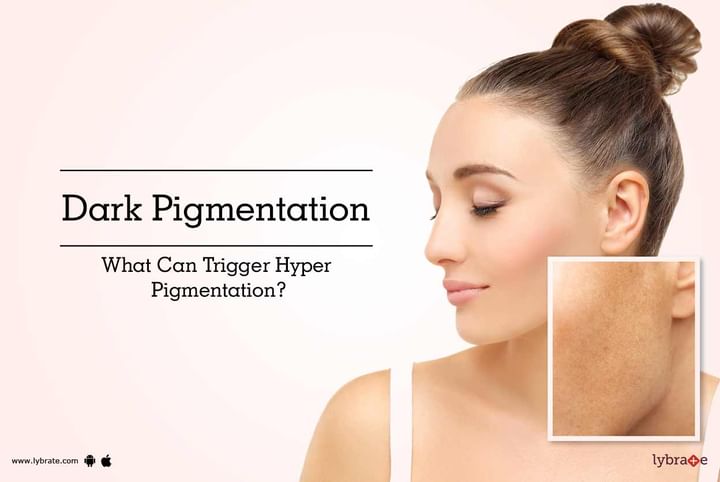Dark Pigmentation - What Can Trigger Hyper Pigmentation?
Hyper pigmentation is a condition in which a part of the body is pigmented in a darker shade than normal. These scars are also known as dark spots or age spots. Hyper pigmentation can occur in places like the face, neck, chest, shoulders, and, in some cases of excessive sun exposure, it may appear on the hands and forearms. It is more common and prominent in dark-skinned individuals, but it can also appear in fair-skinned individuals. Hyper pigmentation can be caused or triggered by a number of factors, ranging from sun exposure to genetic disorders such as tuberous sclerosis. In other words, it is the darkening of the skin tone caused by increased melanin in the skin.
Hyper pigmentation, usually known as a skin blemishes or skin discoloration, is a fairly common skin condition, and it affects millions of people around the world. In a nutshell, it refers to the dark patches that are formed on the skin. It is caused by the skin's irregular production of melanin. You should also know that this condition not only causes discoloration but can also affect the texture of the skin. Hyper pigmentation can be caused by several factors, including sun damage and aging. It may also be caused by the use of certain skin care products and can be easily treated at home with some simple steps. Moreover, this article will give you a detailed explanation of the major causes and reasons of hyperpigmentation. So, keep reading it up to the last word.
Extra Production of Melanin:
Melanin is a normal skin pigment and is produced by the body to protect the skin. It also prevents your skin from tanning, as well as other serious issues or conditions. In fact, it is naturally produced in the body to protect the skin from harmful UV rays. However, the excess production of melanin is the root cause of hyperpigmentation, or dark pigmentation. It must be noted that melanin is the substance that determines your skin color, protects your skin from UV rays of the sun, and is needed to make your skin look smooth and flawless. If you have too much melanin, your skin will get darker than the natural color you were meant to have. Excessive production of melanin is the root cause of hyperpigmentation, or dark pigmentation.
Certain Medications:
Hyper pigmentation, or darkening of the skin, is a condition that primarily occurs owing to an overproduction of skin pigment, or melanin, in the skin. Although this can affect any area of the skin, it is often seen on the face, hands, or neck. Although this condition is not life-threatening, it can make you feel self-conscious, especially when the affected areas are exposed and visible to others. Moreover, you must know that skin pigmentation problems in the form of dark spots, freckles, and acne marks are one of the biggest concerns for countless people across the world these days. There are many reasons for skin discoloration. One of the most common causes of skin discoloration or hyper pigmentation is the use of certain medications such as contraceptives or birth control pills, as well as some chemotherapy drugs. So, it is important to know the side effects of any medication that you are taking or planning to take. It is always the best option to consult your healthcare provider or a medical expert before you pop any pills or potions.
Excessive Sun Exposure:
Hyperpigmentation, or dark pigmentation, can be caused by excessive sun exposure. Too much or excessive exposure to the sun can result in dark spots and pigmentation on the skin. It is more common in people who have darker skin tones. These spots are more prominent in people who are chronically exposed to the sun and in people who spend a lot of time outdoors. Although we all know how harmful UVA and UVB rays can be to our skin, we often forget about sun protection and end up doing a lot of damage to our skin. Hyperpigmentation is also known as sunspots or dark spots, and is a solar lentigo, which is due to overexposure to UV rays. There are some skin products available on the market that can help remove or prevent the excess melanin production in your skin. However, only a dermatologist can prescribe the right treatment.
Conclusion:
There can be a lot of causes of hyperpigmentation or dark pigmentation. Although there are many different types of pigmentation, the most common types are freckles, age spots, and post-inflammatory hyperpigmentation. While genetics may play a role in the formation of pigmentation, there are many other causes of this condition, including sun exposure, medications, and even pregnancy. We hope that this blog has helped you understand the different types of pigmentation and how you can reduce or prevent them from forming. Furthermore, if you have any additional questions about this topic, please feel free to contact us.



+1.svg)
